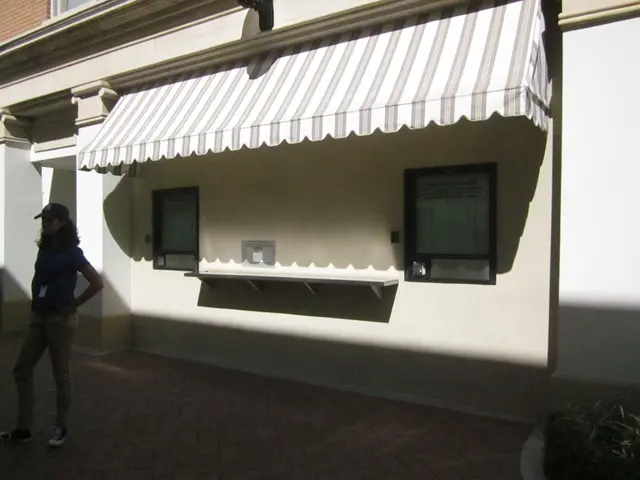Gaza Aid Plan by Gaza Humanitarian Foundation: A Contentious Proposal
International authorities express grave concerns over the proposed humanitarian initiative for Gaza, deeming it potentially risky.
The tight grip on humanitarian aid in Gaza is easing slightly with a new international aid plan. But despite its intentions, this initiative meets resistance, causing apprehension among humanitarian workers. Particularly vulnerable groups may suffer.
According to Unicef spokesman James Elder in Geneva, the proposed plan by the Gaza Humanitarian Foundation (GHF) poses potential risks. Elder expressed concern that distribution centers may attract violence, putting civilians, such as old, disabled children, sick, and injured individuals, in harm's way. He fears that these vulnerable groups might not be able to reach the distribution centers at all, increasing the likelihood that more children may die or face greater risks.
The GHF seeks to revolutionize aid distribution in the sealed coastal strip. The foundation's plan, outlined in a document, aims to supply 1.2 million Palestinians via four centers, with aspirations to eventually reach two million residents across Gaza.
The similarity between the GHF's plans and Israel's previously rejected proposals raises eyebrows among UN sources. Two such sources confirmed the resemblance but asked to remain anonymous. The Israeli government's plan was also met with opposition from UN organizations. UN emergency spokesman Jens Laerke recently stated that the Israeli plan did not meet the minimum requirements for humanitarian work.
The GHF boasts an impressive leadership team. Jake Wood, a US military veteran who founded disaster relief organization Team Rubicon, will head the foundation. David Beasley, former head of the UN World Food Programme and US Republican, is in talks to join the initiative as an advisor.
The Israeli military has prohibited aid deliveries to Gaza for over two months. The military accuses Palestinian terrorist organization Hamas of selling aid goods to citizens at inflated prices to fund fighters and weapons.
[Sources: ntv.de, toh/dpa]
- Gaza Strip
- Israel
- Palestinians
- Humanitarian Aid
- Unicef
- United Nations
Insights:
The Gaza Humanitarian Foundation (GHF) represents a new, civilian-led initiative, seeking to deliver humanitarian aid to the Gaza Strip, bypassing traditional UN mechanisms due to concerns about Israel's blockade and aid access issues. The foundation aims to complement, not replace, the work of the UN and conventional aid groups, with the goal of ensuring aid reaches civilians safely, effectively, and at scale. [Enrichment Data]
- The employment policy of the Gaza Humanitarian Foundation (GHF) is being scrutinized, as its board of directors includes leaders from various sectors, such as Jake Wood, a US military veteran, and David Beasley, a former head of the UN World Food Programme.
- The proposed employment policy of the GHF, which aims to revolutionize aid distribution in the Gaza Strip, has drew criticism from UN sources, as it bears resemblance to Israel's previously contested proposals, raising concerns about potential political implications during war-and-conflicts.
- The Community policy of the Israeli military regarding aid deliveries to Gaza has been under stringent scrutiny, with a ban on aid deliveries for over two months, leading to humanitarian risks for vulnerable populations such as the elderly, disabled children, sick, and injured individuals.
- Despite the intentions of the Gaza Aid Plan by the GHF, there are reservists within the humanitarian community who express fears about potential risks, like violence at distribution centers, which could further jeopardize the safety and well-being of the very groups they aim to support, exacerbating the general-news related to the humanitarian crisis in Gaza.








